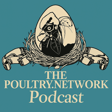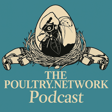
E10 Compassion in World Farming: Progress, pressure and the path to 100 % cage-free
In this episode of the Poultry Network Podcast, Tom Woolman and Tom Willings speak with Dr Tracey Jones, Global Director of Food Business at Compassion in World Farming, about the UK’s shift toward a cage-free future.
Tracey outlines the progress so far – 82 % of UK laying hens are now cage-free, compared with 50 % in 2016 – and the 2025 commitments made by major retailers. The conversation covers Iceland’s recent U-turn on its original pledge, public pressure driven by NGOs and high-profile campaigns, and the importance of retail alignment in creating industry change.
The discussion also addresses the 18 % of hens still in cages, the role of legislation in levelling the playing field, and the need for equivalent standards for imported eggs to avoid undermining UK producers. Funding and support for farmers transitioning to barn or free-range systems are explored, as are future welfare priorities such as enriched environments, veranda and natural light requirements, and phasing out beak trimming.
Tracey also comments on global cage-free efforts, the challenges and slower progress of the Better Chicken Commitment compared with eggs, and the balance of “carrot and stick” in driving corporate commitments. She emphasises the importance of early action, transparent reporting, and maintaining momentum toward higher welfare standards.
CTA:
If you’re involved in egg production, retail, foodservice or manufacturing, now is the time to act. Ensure your cage-free commitments are on track for 2025 and report progress by March 2026 to be included in the 2025 EggTrack. Contact Compassion In World Farming for more information.

